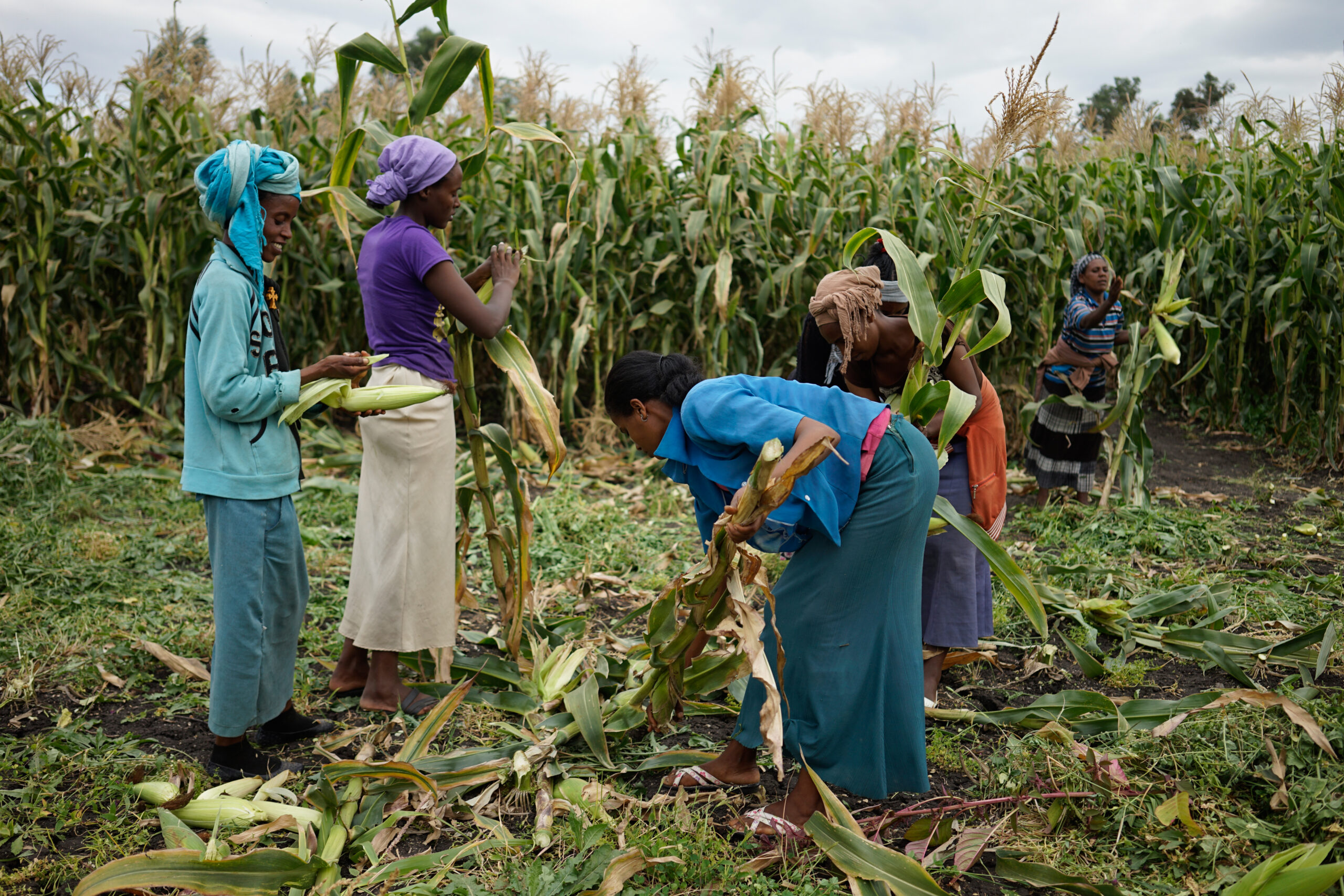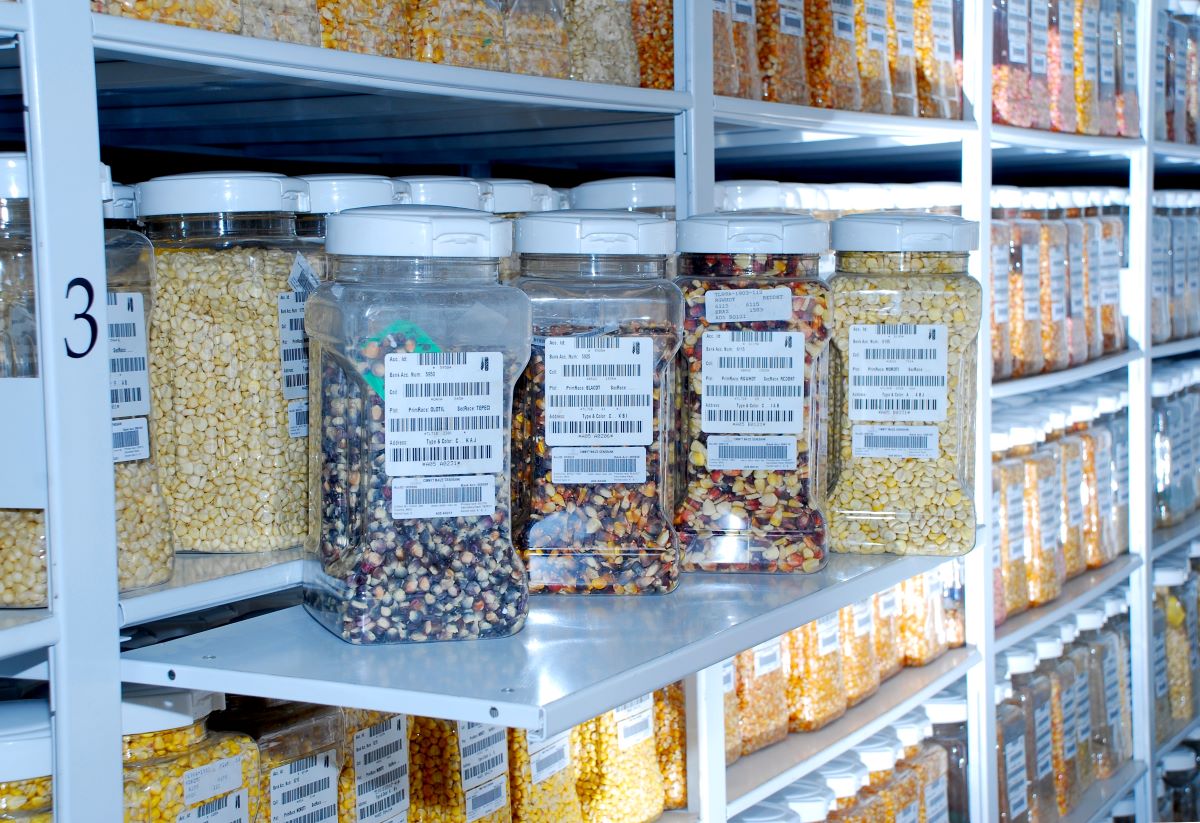Saharah Moon Chapotin, Executive Director for the Foundation for Food and Agriculture Research (FFAR), was invited to an edition of the CIMMYT-hosted Catalysts of Change: Women Leaders in Science.
In his opening remarks, Bram Govaerts, CIMMYT Director General, shared how the seminar series reflects CIMMYT’s efforts to be an inclusive organization by inviting women leaders in science to share their career journeys and insights on how they are catalysts of change in their field.
He introduced Saharah as a plant scientist passionate about agriculture and research in solving today’s challenges. “Her vision and work support a world in which pioneering collaborative science provides every person access to nutritious food grown in thriving farms,” said Bram.
Career journey – Driven by love for canopies and fun science
Growing up in California, with a unique home-schooled background and learning from travels, Saharah developed a love for the sciences and circus arts. “I loved nothing better than being up in a tree or at the top of a mountain. As a teenager, I wanted to be a scientist or pursue something in the performing arts,” she shared.
Growing up, there were no professional role models for Saharah, but she focused on science and was inspired by National Geographic. She went on to earn a bachelor’s degree in biology from Stanford University, completed internships in forest ecology and canopy biology, and earned a doctorate in plant physiology from Harvard University. She studied tree biology in Madagascar and Costa Rica, and her thesis focused on baobab trees. “This combined my desire to be up in the canopy and doing fun science,” she said.
Working in remote areas, with no contact with her lab in the US, was difficult. “I got through it mostly by sheer willpower. You sort of get up every day, lug your gear into the forest, and climb a bunch of trees,” she said.
On a quest to make a social impact
In Madagascar, Saharah saw firsthand the tension between poverty, conservation, and agriculture; how forests were being cut down for agriculture; and how families struggled to feed their children. “They weren’t trying to destroy the environment, they had simply no other choices,” she said. This prompted her to move away from being a researcher into areas where she could make a societal impact.
“I decided to move into the policy world. It was a tough decision because I love science, and I miss it. There are days where I would love to be back doing microscopy or climbing a tree rather than sitting at a computer,” she shared.
Saharah moved to Washington, DC, and held various leadership roles across the government. She held a fellowship at the United States Agency for International Development, focusing on agricultural research.
Now at FFAR, she leads efforts to create partnerships that enhance food and agriculture research, matching government funding with non-federal support. “This approach significantly increases resources for agricultural research, which is vital not only for addressing challenges within the agriculture sector but also for broader societal issues,” she said.
Be aware of gender ratios, recognize everyone in the room
At Harvard, Saharah did not find many role models, compounded by the fact that there were few women on the faculty. “I saw more examples of what I shouldn’t become or do, in the sense of people perhaps not enjoying their lives as scientists, particularly women,” she said.
She shared how, while working in South Asia, she learned much about the role of men and women in farming and other areas of agriculture. “Although there were many women in agriculture and fieldwork, there were fewer women in science and research. I also saw the strikingly different way I was treated as a woman of privilege—coming from the United States and working for a funding agency—and the respect that was accorded to me versus women who perhaps didn’t have the same opportunities,” she shared.
For Saharah, age was a greater factor than gender. Initially, being the youngest in meetings was a challenge, but supportive mentors helped her gain leadership opportunities.
Saharah also spoke about the importance of leaders ensuring that underrepresented groups have a voice and that their contributions are recognized.
“Over the years, every time I walk into a large meeting room, I do a quick check on how many women versus men we have in this room, how many white people versus people of color, and what it means,” she said.
As she assumed more leadership responsibilities, she ensured balanced participation and equal opportunities for conversation during meetings. “Everyone in the room must be recognized for their work. This is especially important when seeking to empower people who are not always given leadership roles,” she added.
Be a role model, an advocate for work-life balance
As she continued to move up in her career, Saharah started a family. This was her opportunity to model what being a working parent looks like in leadership and to advocate for work-life balance. Returning to a senior executive position as a single parent after maternity leave was tough, but she wanted to show that you can be both a leader and a parent.
She made it a point to be open about her family commitments, like stepping out of meetings to pick up her kids or having them join her during Zoom calls. “Because then other people in the room see that this is what you do—you’re a leader, you also have kids, and you have family obligations. I always tried to normalize such conversations. It was important for women leaders to own the broader dynamics of being a person and having a life,” she said.
Sarah Hearne, Chief Science and Innovation Officer at CIMMYT, kicked off the Q&A session by posing questions about what has changed for women in science and how to ensure inclusive practices in science.
Saharah mentioned that a lot has changed in terms of workplace policies and facilities for working parents, and there are “more open conversations” now around what it means to be a woman in science.
She emphasized the importance of intentionality in creating inclusive environments. She recommended crafting job announcements that resonate with diverse applicants and establishing supportive workplace policies, particularly for parents. She advised including underrepresented colleges in agricultural research panels and networks.
For young women in science, Saharah emphasized focusing on building self-confidence, noting that the perception of confidence in others is often misleading, as many individuals—regardless of experience—struggle with self-assurance.

 Climate adaptation and mitigation
Climate adaptation and mitigation 
